Will EU teacher fall hit recruitment?
- Published
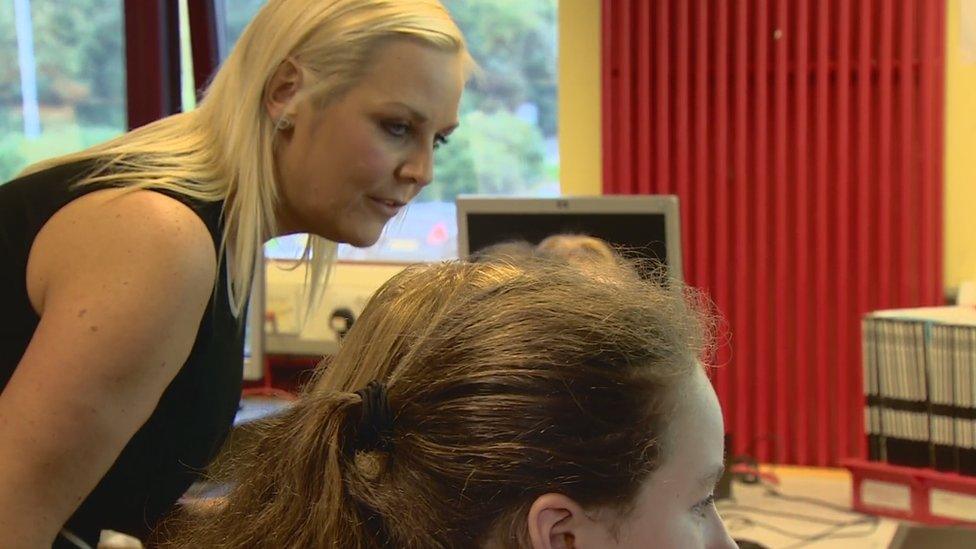
Unfilled teacher vacancies are an issue in some local authority areas
There has been a huge drop in the number of people from EU countries who want to be teachers in Scotland.
So far this year just 14 people from the rest of the EU have applied for registration with the General Teaching Council for Scotland (GTCS), down from 186 last year.
GTCS chief executive Ken Muir is reported to have attributed the decline to the decision to leave the EU.
He is said to have told Holyrood magazine: "Having maintained numbers pretty high from the EU, they are falling off a cliff, and that's absolutely down to Brexit."
The GTCS's Ellen Doherty told BBC Scotland the pattern of declining numbers suggested it was connected to Brexit.
She said: "I can understand that. If you are planning your future, you want that future to be stable and at the moment there are no guarantees and clarity, so people are at best being cautious and at worst they have decided not to come here."
However, Ms Doherty said there could be other factors such as the shortage of STEM (Science, Technlogy, Engineering and Maths) teachers in other UK countries.
"I'm sure Spain, much like Scotland, is trying to retain its teachers so that might be a factor," she said.
Ms Doherty said there were an estimated 600 or 700 teacher vacancies in Scotland and the GTCS were trying to boost the numbers who were registering by focusing on career-changers, part-time study and parents returning to work.
The overwhelming majority of teachers applying to teach in Scotland either lived here anyway or come from other parts of the UK.
But some from abroad, including EU countries, have found work here.
Ms Doherty said this was useful to boost numbers and add to the diversity of the teaching pool.
EU membership has meant citizens of one EU country have the automatic right to live and work in all the others.
But before someone can teach in a school in Scotland they have to register with the GTCS which is Scottish teaching's governing body.
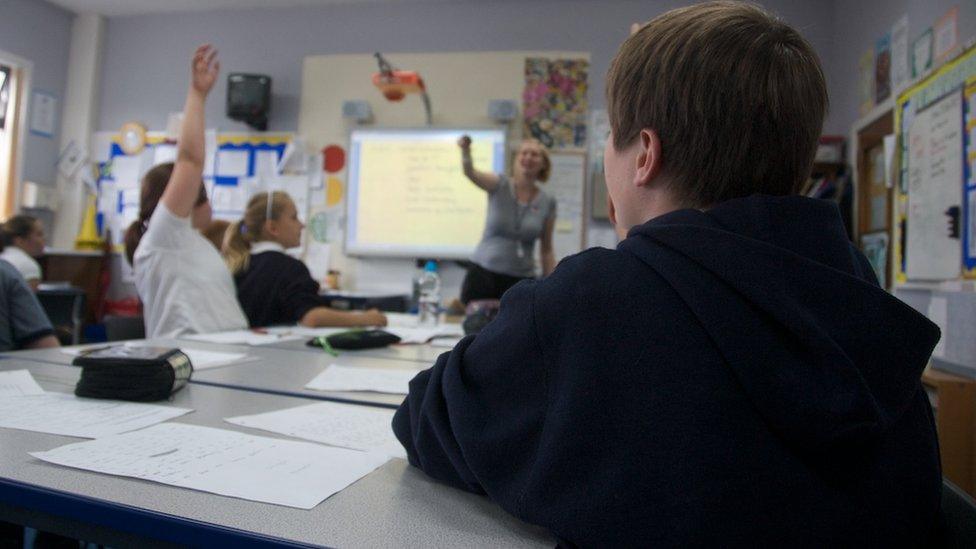
It checks whether someone's qualifications are suitable and carries out personal background checks to make sure the applicant can work with children.
Once someone has secured registration they can apply for vacancies.
The GTCS said only 14 requests for registration had been made in the first six months of 2018 from applicants from European Union (EU) countries and Switzerland.
That compares to 128 applications in 2015, 159 in 2016 and 186 last year.
Last August, BBC Scotland highlighted the challenges some councils were facing filling vacancies - particularly in rural areas and in subjects such as science and maths.
Aberdeenshire Council has a number of teachers from other EU countries and has proactively tried to recruit teachers from the Republic of Ireland - an EU country where English is also the primary everyday language.
Registration with the GTCS is no guarantee of a job though. An applicant, however experienced or well-qualified, who was unable to speak English at the level of a native speaker might find it hard to find work.
But will the drop in would-be teachers from EU countries actually make it harder for some councils to fill vacancies?
The biggest teachers' union, the EIS, believes it certainly won't help.

Many councils though have never pro-actively looked beyond Scotland although they would happily consider applicants from suitably qualified people regardless of where they live.
Indeed it's never ideal to have to look outside Scotland just to fill routine vacancies.
Ultimately the main focus of the debate on teacher recruitment is about how to persuade more graduates to consider teacher training and how to retain the existing workforce.
But the drop in the number from the EU who want to teach in Scotland can only make the recruitment problem in some areas harder to solve.
- Published4 February 2017
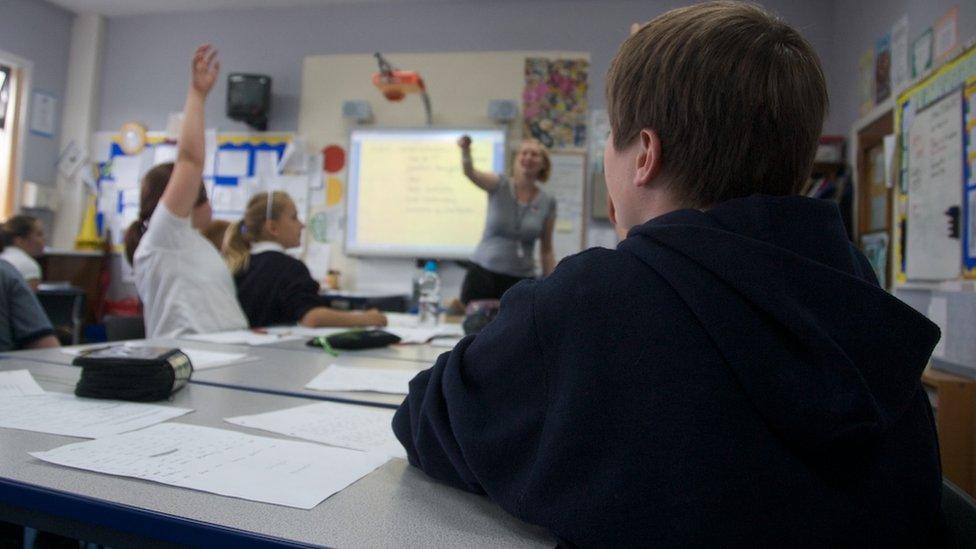
- Published8 October 2017
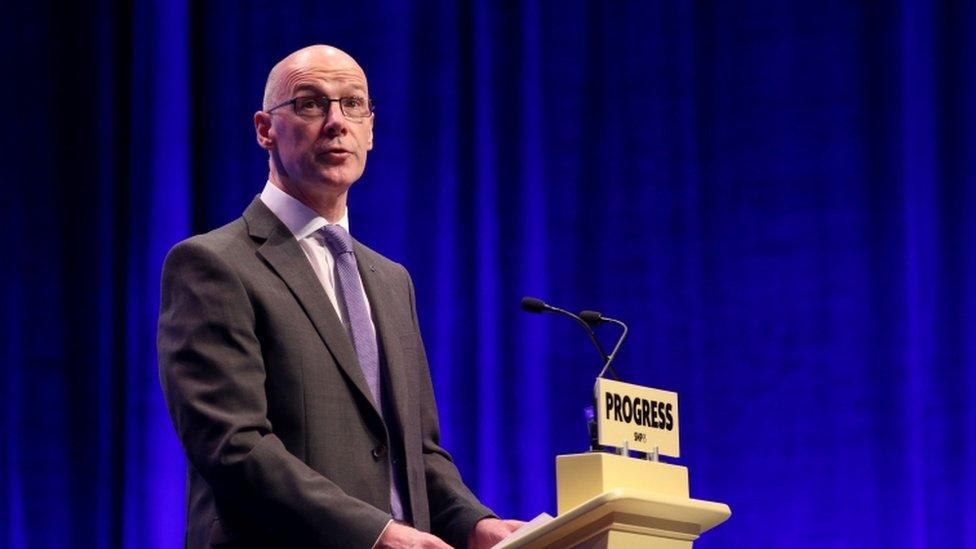
- Published1 September 2017
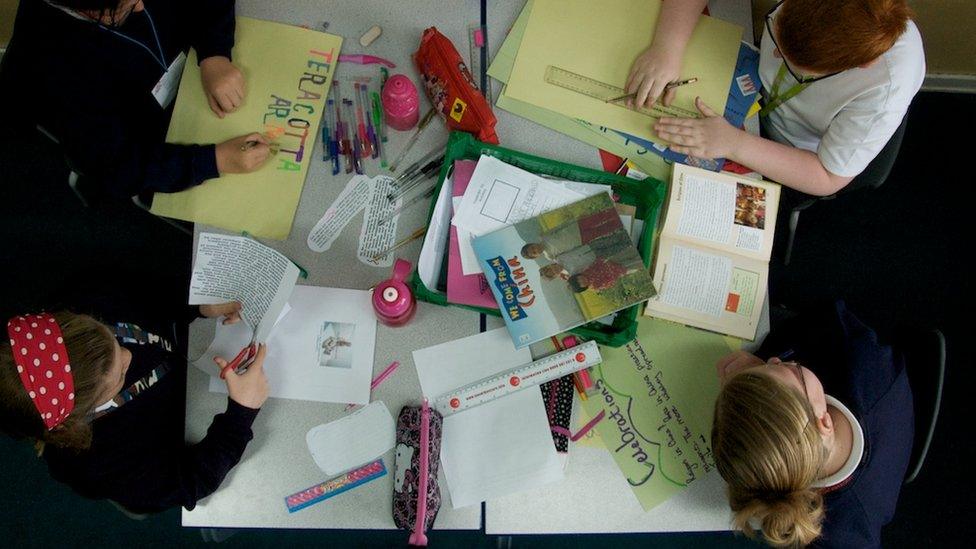
- Published15 August 2017
